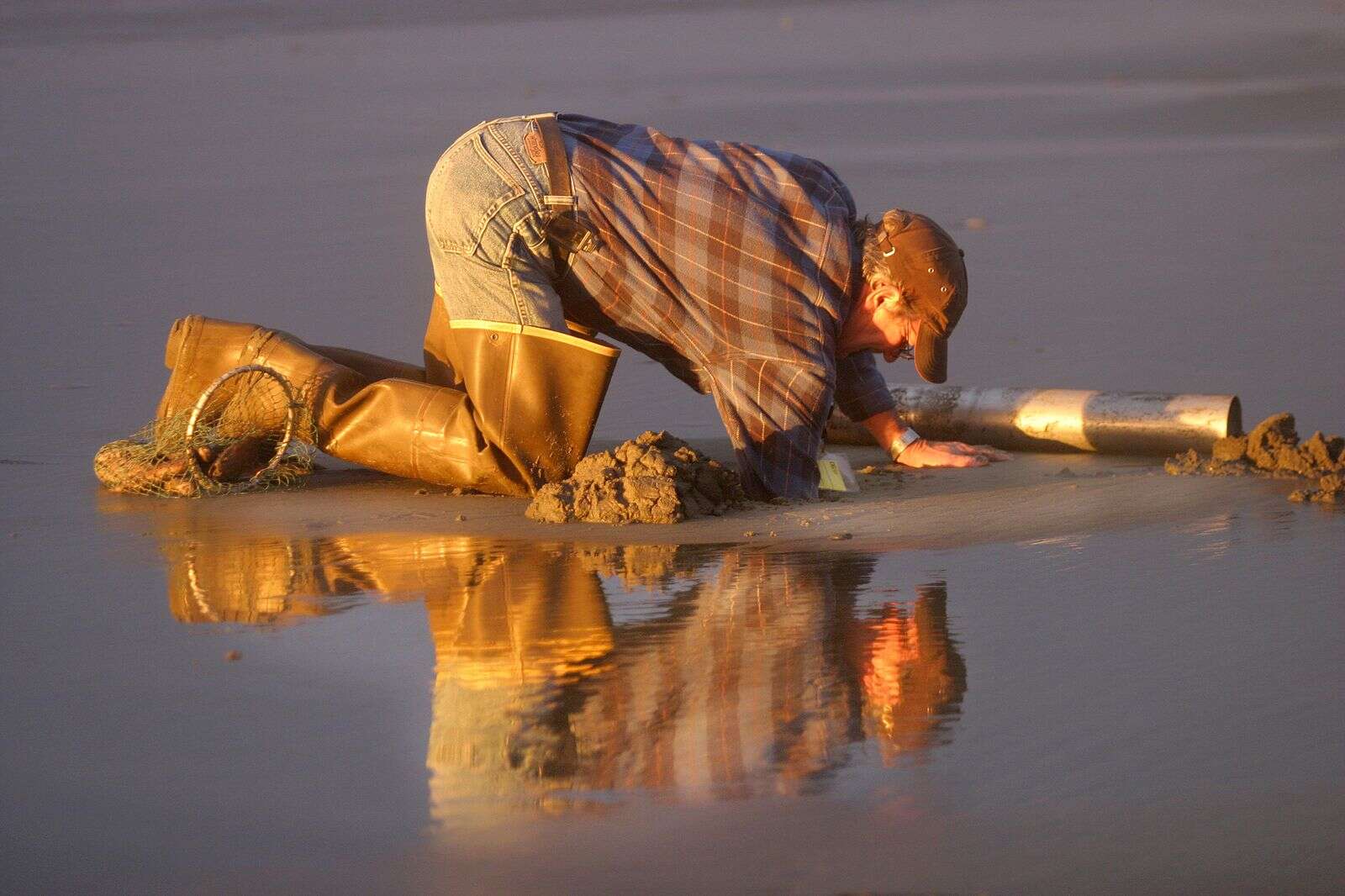Domoic acid levels in razors top safety threshold
Don Liles of Shelton, Wash., digs on the beach for a razor clam awash in the orange glow of the setting sun on the Pacific Ocean. Razor clam digging is closed on the entire Oregon Coast due to high levels of domoic acid. [AP file photo/Larry Steagall]
Potentially dangerous levels of domoic acid in razor clams has triggered a closure along the entire Oregon Coast for people digging and keeping these popular shellfish.
One week after the Oregon Department of Fish and Wildlife shuttered Saturday’s planned start to razor clam digging on the popular Clatsop County beaches, state officials extended the closure statewide Friday.
The statewide closure will remain in effect until further notice.
Domoic acid levels were found to be above the health threshold of 20 parts per million in razor clams in the four Oregon beaches sampled this past week.
The highest was 93 parts per million art Newport’s Agate Beach, according to the Oregon Department of Agriculture, which monitors shellfish safety. Clams tested at Myers Beach near the town of Gold Beach in Curry County were at 24 parts per million.
Friday’s closure did not include Dungeness crab or other shellfish species statewide, but it does pose a potential threat to Dungeness crab harvest by sport-crabbers in the midst of one of the most popular sport-crabbing months in Oregon.
Dungeness crab often feed on razor clams and can ingest the domoic acid that clams capture from plankton they ingest.
“They’re not a concern yet but we will talk about whether we’ll be sampling Dungeness crab,” said Judy Dowell from the ODA’s food-safety program.
The recreational crab season remains open.
The razor clam closure does not create a major calamity on the South Coast, where razor clam digging has been rare in recent years.
The Oregon Department of Fish and Wildlife has the authority to open and close sport and commercial fisheries but it does so under health and public safety recommendations from ODA, which is in charge of food safety in the state.
Domoic acid can cause minor to severe illness and even death in humans.
Severe poisoning can result in dizziness, headaches, vomiting and diarrhea. More extreme cases can result in memory loss and death.
Reach Mail Tribune outdoors writer Mark Freeman at 541-776-4470 or mfreeman@rosebudmedia.com.
